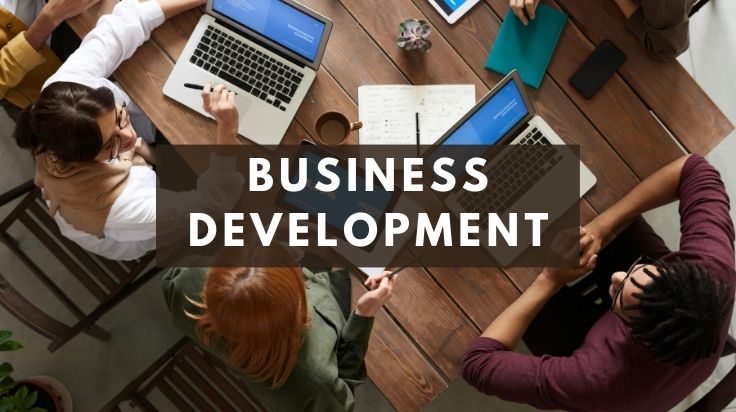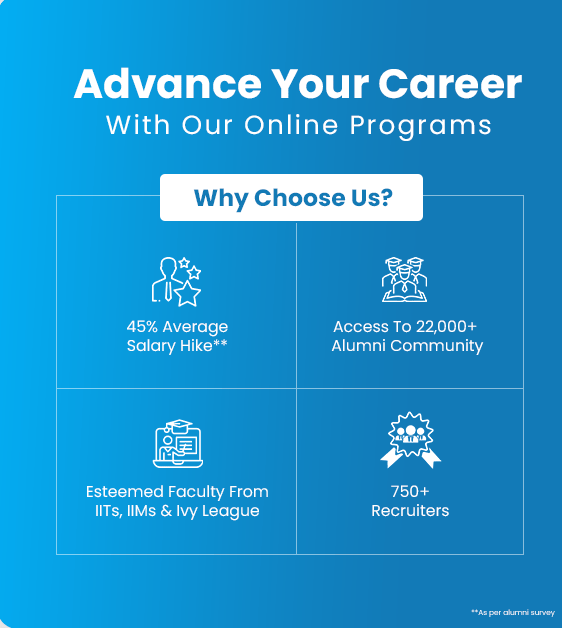45+ Business Development Interview Qs! (Basic, Concepts, Tech)

Landing a business development role can feel like conquering a peak—challenging, demanding, but ultimately rewarding. And just like any ascent, you need the right gear, including answers to the questions likely waiting at the summit. In 2024, expect recruiters to go beyond basic skills, probing for strategic thinking, adaptability, and problem-solving prowess.
10 frequently asked business development interview questions (and answer tips) to help you scale new heights:
1. Walk me through your approach to identifying and qualifying leads.
- Showcase your research skills: Mention market research data and industry trends you use to pinpoint ideal customers.
- Highlight your analytical mind: Explain how you assess leads based on specific criteria, like budget, decision-making authority, and pain points.
2. Describe a time you exceeded your sales goals. How did you achieve it?
- Focus on the process, not just the outcome: Discuss your strategic planning, prospecting methods, and relationship building techniques.
- Quantify your success: Use data-driven metrics to demonstrate the impact of your efforts, like increased conversion rates or revenue from new clients.
3. What are your strengths and weaknesses in a negotiation setting?
- Be honest and self-aware: Acknowledge your weaknesses while showcasing your willingness to learn and improve.
- Emphasize your strengths: Highlight your active listening skills, ability to build rapport, and focus on win-win outcomes.
4. How do you stay up-to-date on industry trends and competitor activity?
- Demonstrate your proactive nature: Talk about attending industry events, reading relevant publications, and utilizing social media for research.
- Show your competitive spirit: Mention specific examples of how you’ve used competitor insights to refine your sales strategies.
5. Tell me about a challenging situation you faced in business development and how you overcame it.
- Choose a story that showcases resilience and problem-solving skills.
- Focus on the learning experience: Explain what you learned from the challenge and how you’ve applied those lessons to future situations.
6. Why are you interested in this specific company and role?
- Do your research: Mention specific projects, company values, or industry leadership that resonate with you.
- Tailor your answer to the company’s mission and goals. Show how your skills and experience align with their needs.
7. What are your salary expectations?
- Research compensation trends for similar roles in your region.
- Focus on the value you bring: Frame your answer around your experience, skills, and expected contribution to the company.
8. Do you have any questions for me?
- Prepare insightful questions that demonstrate your genuine interest in the company and role.
- Avoid generic questions that could be answered by reading the job description.
9. What are your career aspirations in business development?
- Show ambition and long-term commitment to the field.
- Mention your desire to learn, grow, and take on increasing responsibility within the company.
10. Tell me something interesting about yourself that’s not on your resume.
- Share a personal anecdote that reveals your soft skills, like communication, teamwork, or creativity.
- Keep it relevant and avoid anything unprofessional.
11. Explain what are the key strengths of a business analyst?
12. Explain how you deal with rejection?
13. What is your preferred strategy for finding business partners?
14. How would you keep in touch with existing customers?
10 Core Concept Based Business Development Interview Questions for 2024
Recruiters increasingly value a deep understanding of core business development concepts beyond just sales skills. Here are 10 questions to test your grasp of the fundamentals, along with answer tips:
1. Explain the difference between business development and sales.
- Sales focuses on closing individual deals, while business development builds long-term strategic partnerships and identifies new markets and opportunities.
- Highlight your focus on relationship building, market analysis, and strategic planning.
2. Briefly describe the stages of the business development lifecycle.
- Identify stages like lead generation, qualification, nurturing, negotiation, and closing.
- Showcase your understanding of the entire sales funnel and your ability to guide prospects through it.
3. What are some key metrics used to measure business development success?
- Go beyond just revenue to mention metrics like lead conversion rate, customer acquisition cost, and pipeline velocity.
- Demonstrate your data-driven approach and ability to track progress.
4. How do you approach value proposition development for different customer segments?
- Emphasize the importance of tailoring your message to specific customer needs and pain points.
- Illustrate your ability to conduct customer research and develop compelling arguments for your product or service.
5. Describe your experience with competitive analysis and its role in your strategy.
- Explain how you research competitors, identify their strengths and weaknesses, and use that information to differentiate your offering.
- Showcase your competitive awareness and strategic thinking.
6. How do you build and maintain strong relationships with potential and existing clients?
- Highlight your communication, active listening, and problem-solving skills.
- Mention specific examples of building rapport and exceeding client expectations.
7. What are your thoughts on the impact of technology on business development?
- Discuss how you utilize tools like CRM platforms, social media, and marketing automation to optimize your work.
- Demonstrate your adaptability to a changing digital landscape.
8. Explain your approach to handling objections and negotiating deals.
- Emphasize your ability to address concerns head-on, propose win-win solutions, and build trust with the client.
- Share a past example of successfully overcoming an objection and reaching an agreement.
9. How do you stay motivated and overcome challenges in a demanding business development role?
- Talk about your passion for the field and your intrinsic drive to succeed.
- Share strategies you use to manage stress, prioritize tasks, and maintain a positive attitude.
10. What are your thoughts on the future of business development? Emerging trends?
- Show your forward-thinking mindset by mentioning trends like personalization, data-driven decision making, and the rise of new technologies.
- Demonstrate your willingness to learn and adapt to future changes in the industry.
Technical Interview Questions for Business Development
1. How would you explain a complex technical product or service to a non-technical audience?
- Common Answer Tip: (Focus on clear, concise explanations using analogies and relatable examples. Emphasize the value proposition and benefits in layman’s terms.)
2. Describe your experience developing and executing targeted marketing campaigns for a technical audience.
- Answer: (Mention specific channels and strategies used, like technical webinars, industry publications, or targeted online advertising. Quantify results if possible.)
3. How do you stay up-to-date on the latest technological advancements in your field?
- Answer: (List specific resources like industry conferences, online communities, or thought leader publications you follow. Mention recent trends you’ve identified and their potential impact.)
4. Explain your approach to identifying and qualifying potential partners or customers within a technical market.
- Answer: (Highlight your understanding of the technical landscape and industry needs. Mention industry events, online platforms, or research methods you use for lead generation.)
5. Describe a situation where you had to overcome a technical challenge in a business development context.
- Answer: (Choose a relevant example showcasing your problem-solving skills and ability to collaborate with technical teams. Focus on the outcome and lessons learned.)
6. How do you handle customer objections or concerns related to the technical aspects of your product or service?
- Answer: (Demonstrate your technical knowledge and ability to address concerns with data, case studies, or alternative solutions. Highlight your active listening and communication skills.)
7. Explain your experience in navigating complex contract negotiations involving technical specifications and deliverables.
- Answer: (Mention your understanding of legal and technical terms. Showcase your negotiation skills and ability to advocate for your company’s interests while ensuring a win-win outcome.)
8. Describe how you utilize technical data and analytics to inform your business development strategies.
- Answer: (Show your data-driven approach. Mention specific metrics you track and how you use them to identify market trends, optimize pricing, or personalize your offerings.)
9. How do you build and maintain relationships with key decision-makers and technical influencers within your target market?
- Answer: (Highlight your networking skills and industry involvement. Mention professional networks, conferences, or thought leadership initiatives you participate in.)
10. Share your thoughts on the future of your technical field and its potential impact on business development strategies.
- Demonstrate your forward-thinking mindset and awareness of industry trends. Discuss potential growth areas or challenges and how you’d adapt your approach accordingly.
Situation Based Interview Questions for Business Development
1. You’re pitching a complex solution to a potential client who seems hesitant due to budget constraints. How do you adapt your approach to address their concerns and demonstrate the value proposition beyond cost?
Answer Tips:
- Emphasize ROI: Focus on how your solution can save them money in the long run, either through increased efficiency, cost reduction, or revenue generation. Show concrete calculations to quantify the value.
- Offer alternatives: Suggest flexible payment plans, phased implementation, or scaled-down versions of the solution to meet their budget.
- Highlight non-monetary benefits: Talk about improved processes, employee satisfaction, or brand reputation gained by adopting your solution.
2. You’ve identified a promising new market opportunity, but your company has limited resources for expansion. How do you convince your manager to invest in the venture despite the risks?
Answer Tips:
- Conduct thorough market research: Present data and analysis that validate the size and potential of the new market.
- Develop a cost-effective approach: Propose a pilot project or phased rollout strategy to minimize upfront costs and demonstrate early wins.
- Focus on strategic alignment: Tie the opportunity to existing company goals and long-term vision. Emphasize how the venture can strengthen market position or diversify revenue streams.
3. You’re facing intense competition for a major deal. How do you differentiate your offering and build a compelling case for the client to choose you over your competitors?
Answer Tips:
- Deep dive into client needs: Conduct thorough research to understand their specific pain points and challenges. Show how your solution uniquely addresses those needs better than the competition.
- Showcase your expertise: Highlight your track record of success in similar projects and your team’s specific skills and experience relevant to the client’s requirements.
- Offer strategic partnerships: Propose collaborations with other companies that complement your offering and provide greater value to the client.
4. You’ve built a strong relationship with a key decision-maker at a promising client, but they are about to leave the company. How do you navigate this change and ensure the business deal stays on track?
Answer Tips:
- Build rapport with the new stakeholder: Actively reach out to the new decision-maker, understand their priorities, and demonstrate your value proposition to them.
- Leverage your existing relationship: Use your connection with the previous contact to establish trust and gain support from the new decision-maker.
- Highlight continuity and long-term value: Emphasize how your solution benefits the company beyond individual team members and can contribute to their broader goals.
5. You encounter an ethical dilemma during a negotiation with a potential client. How do you handle the situation while protecting your company’s interests and reputation?
Answer Tips:
- Seek guidance: Consult with your superiors or legal counsel to clarify the ethical implications and explore alternative approaches.
- Communicate transparently: Explain your concerns to the client in a clear and honest manner, focusing on finding a mutually agreeable solution.
- Prioritize long-term relationships: Choose integrity over short-term gains and emphasize building trust for future collaborations.
Compliance Related Interview Questions for Business Development Role
1. Describe a situation where you encountered a potential compliance issue during a business development negotiation. How did you address it and ensure ethical conduct?
Answer:
- Highlight your awareness of relevant regulations and ethical standards. Mention specific policies or guidelines that informed your decision-making.
- Focus on proactive resolution: Explain how you identified the potential issue, initiated open communication with stakeholders, and sought guidance if needed.
- Showcase your commitment to ethical outcomes: Detail the steps you took to mitigate the risk and reach a solution that complied with regulations and maintained integrity.
2. Imagine you’re presented with an opportunity to close a lucrative deal, but achieving it requires bending certain ethical lines. How do you handle this dilemma?
Answer:
- Emphasize your unwavering commitment to ethical conduct regardless of potential rewards. Clearly state your refusal to compromise ethical principles.
- Offer alternative solutions: If possible, suggest ways to modify the deal or approach that align with ethical guidelines while still achieving desired outcomes.
- Seek support: Highlight your willingness to consult with superiors or relevant authorities for guidance and ensure transparency throughout the process.
3. How do you stay up-to-date on evolving compliance regulations and ethical best practices in your industry?
- Demonstrate your proactive approach to compliance: Mention specific resources you utilize, like industry publications, professional organizations, or online compliance training modules.
- Focus on continuous learning: Emphasize your commitment to staying informed and adaptable in a changing regulatory landscape.
- Highlight your ethical awareness: Connect your efforts to staying updated with your desire to maintain high ethical standards and build trust with clients and stakeholders.
4. You receive confidential information from a potential client that could benefit another ongoing negotiation. How do you handle this sensitive situation without compromising trust or confidentiality?
- Recognize the ethical challenge: Clearly state your understanding of the confidentiality obligation and potential misuse of information.
- Maintain client trust: Explain how you would avoid using the information without explicit consent, even if it could benefit another deal.
- Offer alternative solutions: Propose other strategies to gain insights into the other negotiation or suggest alternative approaches that don’t compromise confidentiality.
5. How do you integrate compliance and ethical considerations into your day-to-day business development activities?
- Demonstrate your proactive approach: Explain how you routinely assess potential risks and proactively seek guidance when unsure about the ethical implications of your actions.
- Emphasize transparency and communication: Highlight your commitment to open communication with colleagues and superiors about potential compliance issues or ethical concerns.
Showcase your leadership: If relevant, mention how you promote a culture of compliance and ethical decision-making within your team or department.
UPES Online Admission Enquiry
Recommended Courses

Latest Blogs

7 Surprising Benefits of an MBA in Oil and Gas Management
An MBA in Oil and Gas Management helps you advance your career with Leadership Skills, Networking, Global Knowledge, Professional Growth.
Read MoreMar 15, 2024 I 2 minutes
45+ Business Development Interview Qs! (Basic, Concepts, Tech)
Master your Business Development interview prep with 45 most asked questions for freshers, experienced & techies. New Questions updated!
Read MoreFeb 16, 2024 I 10 minutes
Introduction to Renewable Energy Management: What You Need To Know
Discover what is renewable energy management, its importance to the world and the key aspects of managing these energy sources.
Read MoreJan 20, 2023 I 2 minutes







